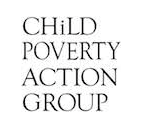
Findings of a recent study byChild Poverty Action Group (CPAG) and associates show that more advocacy is needed at the coalface for those in financial need, especially for families with children who have disabilities and chronic illness.
Barriers to support: Uptake of the Child Disability Allowance in Otara is a new report being released on Monday November 21 by CPAG, and is co-authored by CPAG’s co-convenor Alan Johnson and researcher Jessica Suri of Otara Health.
Barriers to support reports findings from a survey of more than 1000 households in the south Auckland suburb of Otara, and was undertaken by a partnership of CPAG, Disability Connect and Otara Health Charitable Trust. The survey looked at the extent of children with disabilities or chronic illness in Otara households and whether or not these households were gaining access to their Child Disability Allowance (CDA) entitlements.
Findings included that only a small proportion of households who were possibly eligible for the CDA were receiving it, and that most people did not know about the CDA or found the process of applying for it too difficult to negotiate. Others may have had their applications declined and were put off from reapplying. The difficulties encountered including being able to understand the application procedure itself, unpleasant interactions with Work and Income staff and difficulties in getting supporting documents for their application.
Many respondents reported that their children had chronic illnesses such as eczema or asthma which placed considerable stress on finances and their ability to earn a living. The findings may be indicative that physical and intellectual disabilities were not readily disclosed to the researchers, perhaps because they may be seen as shameful in some cultures. This could present further barriers to gaining necessary supports.
In light of the exploratory findings, CPAG has set out recommendations to improve accessibility to the CDA which include:
– Increase promotion of the CDA to families and doctors, especially the eligibility criteria – by the Ministry of Social Development (MSD) and Ministry of Health (MoH).
– Simplify the application procedure for CDA.
– Better funding for culturally appropriate advocacy services by MoH and District Health Boards.
The report also includes an overview from the MSD for the levels of access to the CDA offered to families across Auckland and New Zealand.
An additional aim of this project was to assist Otara families with disabled children who are not receiving their CDA entitlements to gain these payments.
The report launch will take place at 11:30 am on Monday morning at the Otara Music Arts Centre, Corner Newbury Street and Bairds Road, Otara Town Centre.





Great work again CPAG…but just so you know, the Misery of Health Disability Support Services DO have programs specifically targeted at Maori….http://www.health.govt.nz/our-work/disability-services/maori-disability-support-services and Pasifika…http://www.health.govt.nz/our-work/disability-services/pasifika-disability-support-services communities.
Their brief? “Services for Pasifika disabled people
The Ministry of Health is committed to working with the health and disability sector to improve Pacific peoples’ health outcomes and reduce inequalities experienced by Pacific peoples.
The Ministry of Health funds a range of disability support services for people (mostly aged under 65 years) who have been assessed as having a physical, intellectual or sensory disability (or combination of these) that is likely to continue for a minimum of 6 months; resulting in a reduction of independent function; and that require ongoing support. Some of these services are offered by Pasifika providers or other organisations offering services specifically for Pasifika disabled people.”
and….”Services for Māori
The Treaty of Waitangi is New Zealand’s founding document and the Government acknowledges its obligations as a Treaty partner. The Māori philosophy towards health is based on a wellness or holistic health model. The Ministry of Health recognises that services for Māori should be based on Māori thinking and behaviour and recognises Māori ways of healing, care, and rehabilitation.
The Ministry of Health funds a range of disability support services for people (mostly aged under 65 years) who have been assessed as having a physical, intellectual or sensory disability (or combination of these) that is likely to continue for a minimum of 6 months; resulting in a reduction of independent function; and that require ongoing support. Some of these services are offered by Māori providers or other organisations offering services specifically for Māori.
Several key documents set out the specific needs and requirements of Māori who use health services.
Guidelines for Cultural Assessment
He Korowai Oranga: Māori Health Strategy
Whakatātaka: Māori Health Action Plan 2006–2011
Many organisations are contracted by the Ministry of Health to provide services for disabled Māori. For more information refer to our Māori Health Provider Directory.”
The fact that these well funded ‘services’ are failing to deliver comes as no surprise. There are far too many well fed and well dressed so-called advocates beetling around in their nice government funded vehicles supposedly delivering ‘services’ to their respective communities.
Snouts in the trough.
Comments are closed.